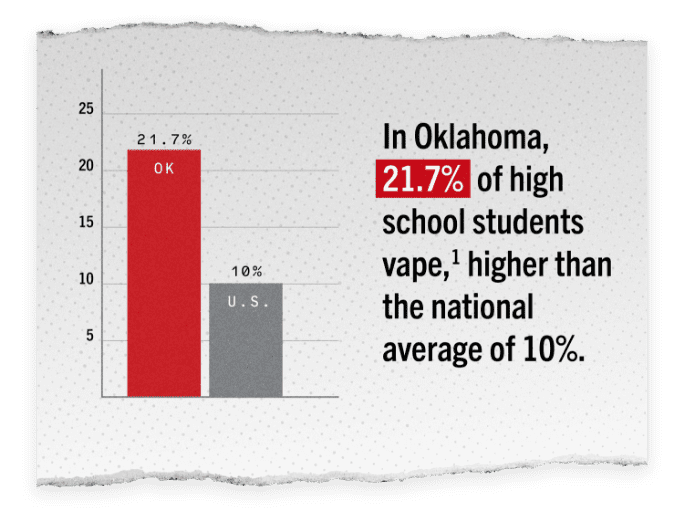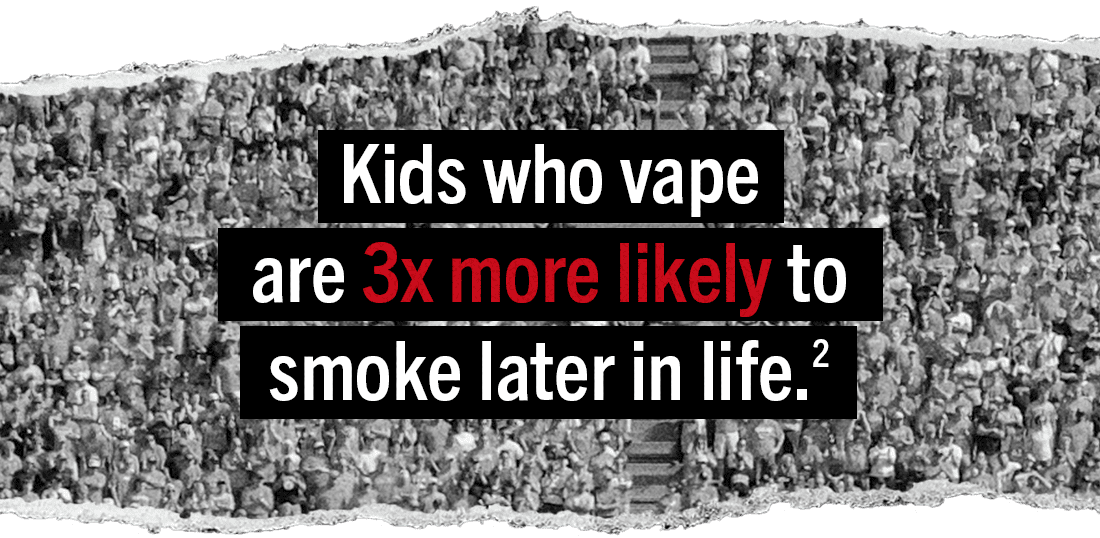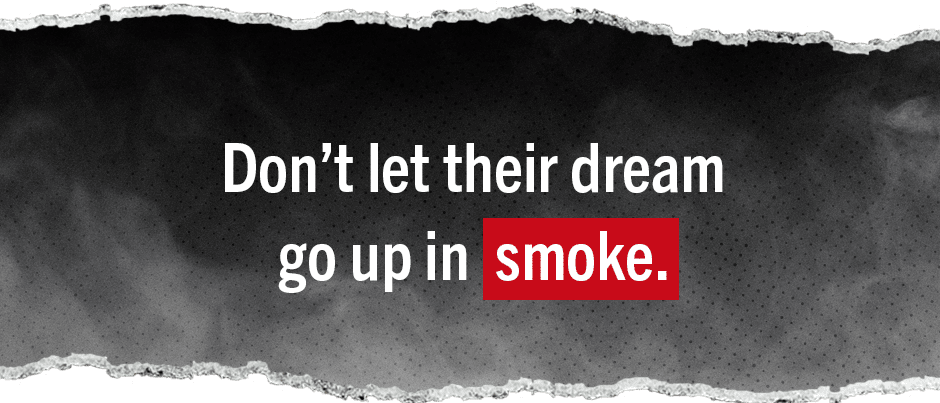

How Nicotine Affects Teen Athletes
Young athletes of today are facing a harmful threat separate from torn ligaments, pulled muscles or bruised knees: nicotine addiction. Tobacco and nicotine have been engrained in professional sports culture for decades. From sponsorships and advertising to product placement, Big Tobacco has done everything they can to associate their deadly products with athletes and an active lifestyle.
This decades-long messaging tactic has left many kids and teens with the perception tobacco and nicotine aren’t a threat to athletic achievement and are sometimes seen as essential props of the athletic aesthetic. When it comes to athletic performance and achievement, nothing could be further from the truth. Nicotine is one of the most addictive substances and has severe negative impacts on the body and mind — leading to struggles that can derail a teen’s athletic career before it even begins.

The Physical Toll
From decreased lung function and cardiovascular endurance to slow healing, nicotine has several cons for athletes. Vaping has been linked to seizures, lung injuries like popcorn lung and an increased susceptibility to lung infections. Studies show men who vape reported running slower and performing below the benchmark in several other exercises.
Smokeless tobacco — often associated with baseball, football and hockey — increases the risk of oral, pancreatic and esophageal cancers. For young athletes pushing their bodies to the limit, nicotine robs them of the capacity, stamina and recovery needed for long-term success.

The Mental Impact
We know how nicotine harms developing brains. Even a short amount of use can induce anxiety, depression, irritability and lead to difficulty concentrating. This has negative impacts on academic performance and can affect eligibility. An underdeveloped teenage brain exposed to nicotine can also lead to:
- Learning difficulties
- Mood swings
- Headaches
- Impulsivity

Tips for Parents and Coaches
Vaping, dipping, smoking and other forms of nicotine use are performance killers that have no place in young athletes’ lives. The culture Big Tobacco creates around sports is deep-rooted and will not be easy to overcome — many view the problem as “not a big deal.” However, when we all work together on the same team, we can save the lives and futures of the next generation. Because the worst thing your teen athlete should be worried about is a sprained ankle, not addiction.
Whether you’re a parent of a teen or spend your days coaching them, you are the last line of defense against nicotine addiction. Your influence, advice and guidance can help push them to peak performance, accolades and even scholarships.











